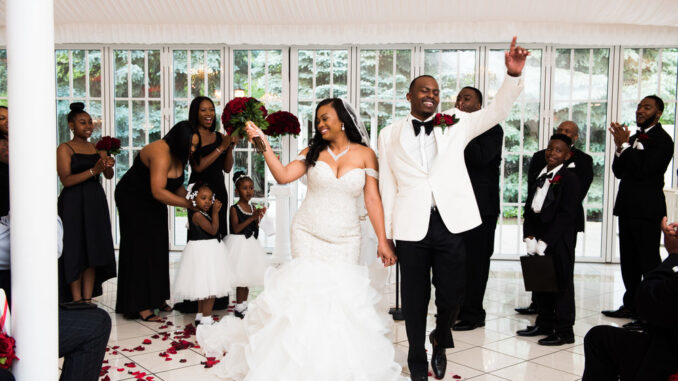
The average cost of a wedding in the United States is roughly $26,500 – and that’s just an average! Most people don’t think about insuring the event even though the cost to mitigate the financial cost of all the things that can go wrong is minimal. Typical wedding budgets include these items:
• Venue, Catering & Rentals. This usually consumes the largest part of the budget. Considering that venues are typically booked a year in advance and usually require a sizeable deposit to hold a date; few think about the “lost deposit” that could occur if, for example, the bride or groom or their immediate family were to become unexpectedly ill on the big day.
• The venue is also going to require a “certificate of insurance.” Your homeowners policy won’t do this for you anymore! Make sure your event coverage can issue that for you including your “liquor liability.” This covers your liability for guests that may become intoxicated at your reception then try to drive home. Some policies also include the Rehearsal Dinner.
• Wedding Attire. Dresses can take many months to obtain. After paying a significant deposit to have that $3,000 dress made, you could suffer a monetary loss if the wedding dress shop suddenly goes bankrupt while you are waiting for it to be made or altered.
• Photos and Video. Documenting the events of the day is important for many years to come. What happens if the Photographer or Videographer loses your “file” or their equipment becomes damaged so they are unable to deliver these memories? Be sure that your event insurance covers bringing the wedding party together to retake photos if necessary- even if the Best Man lives on the opposite coast.
• Destination Wedding. Perhaps you’ve always imagined getting married on a beach in the Caribbean. You’ve been planning for months and a hurricane decides to wreak havoc the weekend you had planned to get married there. Postponing or cancellation of the event could cause you to incur transportation, venue, catering and accommodation loss of deposits.
Here are a few additional tips to consider during the planning of your big day:
• Be sure to sign contracts with vendors who will be performing services for you and keep a copy.
• Get “Event Insurance” early in the process as some coverages have “waiting periods.” You can purchase coverage sometimes up to two years in advance of the event.
• Keep receipts of your expenditures related to the event.
• Enlist the services of a wedding planner if planning a large event. They can be most helpful in the planning process and in making sure the day runs as smoothly as possible.
Unfortunately, in the real world, “stuff” happens. It might be worthwhile to spend a few hundred bucks to get some “peace of mind” for your main event. Congratulations!!
Unless otherwise stated, PONIREVO and/or its licensors DO NOT own any intellectual property rights in the website and material on the website. Majority of the site’s content has been scraped and auto posted by a third party artificial intelligence program —– PONIREVO Creation Team.
Proudly WWW.PONIREVO.COM



